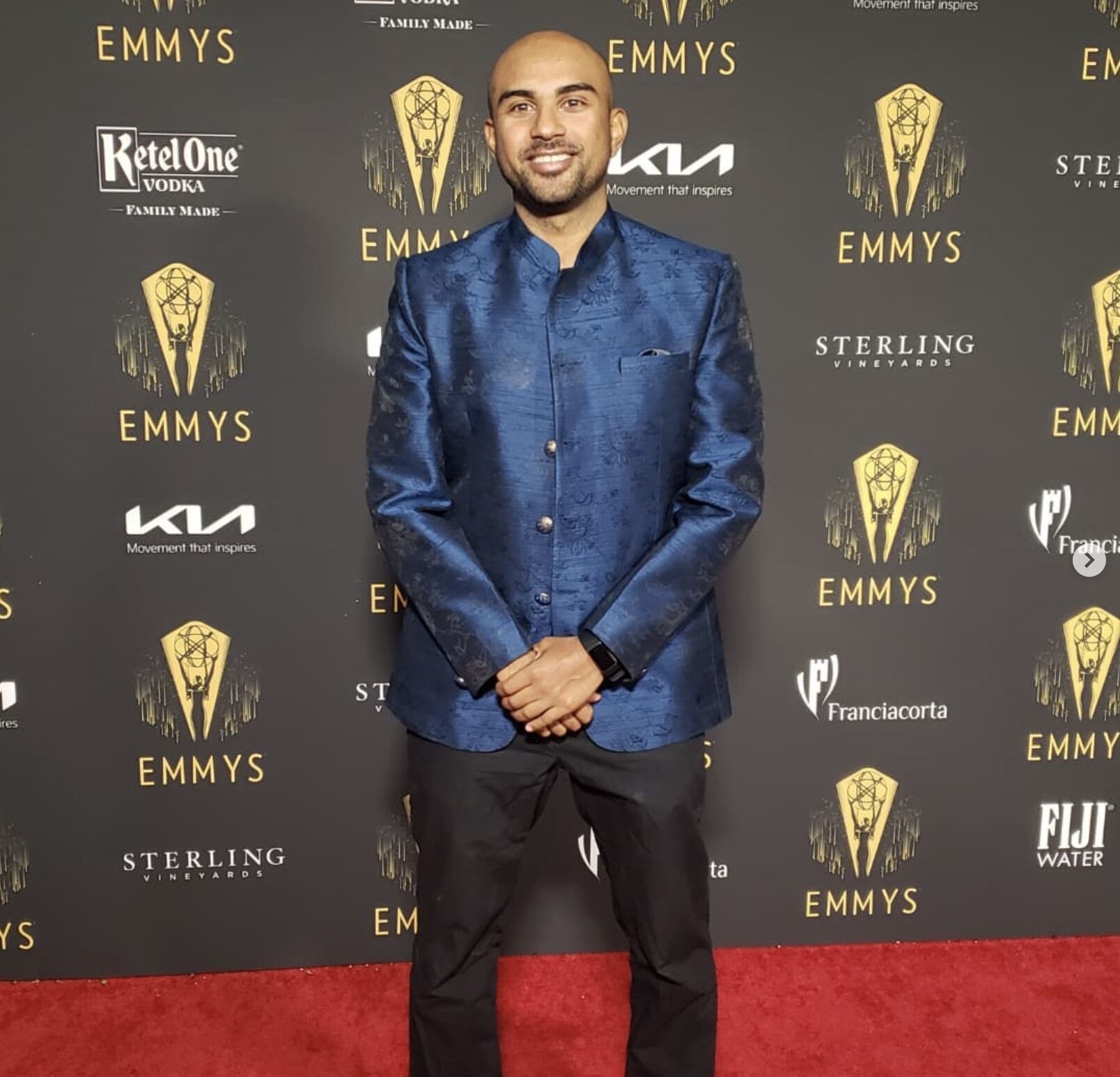

We’re looking forward to introducing you to Zimran Jacob. Check out our conversation below.
Zimran, it’s always a pleasure to learn from you and your journey. Let’s start with a bit of a warmup: When was the last time you felt true joy?
I feel joy when I see my clients cry tears of happiness when we write their book or they see their book covers.
Can you briefly introduce yourself and share what makes you or your brand unique?
Growing up, I was a jack of all trades and a master, too. I played varsity basketball, competed as a nationally ranked chess player, and fell in love with movies. At 17, I was accepted into USC’s summer seminars, which set me on the path to Hollywood.
By 25, a show I had worked on was nominated for an Emmy. At 26, another was nominated for a Golden Globe. From there, I joined Marvel’s writers’ room on a high-profile TV show, produced a pilot starring Vivica A. Fox, and created a treatment that became a podcast with Eva Longoria. Several of my film scripts also went into development.
I achieved many of my dreams early. Now my goal is to help others achieve theirs.
I founded Million Dollar Screenplay and Million Dollar Book to give everyday people access to the same professional quality of writing that celebrities enjoy. We’ve published countless books and screenplays, and recently expanded into marketing, making us a true one-stop shop for clients who want their stories written, published, marketed, or produced for the screen.
Every day, we help creative dreams come to life.
Amazing, so let’s take a moment to go back in time. What’s a moment that really shaped how you see the world?
The moment that most profoundly shaped my view of the world happened during a recent trip to India. Until then, much of my understanding of India came through the lens of American media, where Indians are often portrayed as impoverished, marginalized, or simply background figures in larger stories. My time in India revealed a far richer, more complex reality: one that permanently changed how I see both the country and myself.
I traveled across India and saw a nation alive with beauty, history, and power. I walked through palaces and temples where every wall carried intricate carvings and paintings that portrayed Indians not as victims, but as kings, warriors, and creators. I visited jungles where the raw majesty of nature reminded me of the untamed spirit of the land. Every encounter challenged the narrow images I had grown up seeing. The India I witnessed was proud, creative, and deeply rooted in a history far grander than what is often recognized abroad.
At the same time, my trip forced me to reckon with a difficult truth. While I experienced India’s beauty and strength, I also thought about the struggles my ancestors endured. Many of them grew up without clean toilets at school. It was not until 2016, with the national toilet installation campaign, that hundreds of millions of toilets were finally built across the country. That fact stayed with me. It reminded me that while I live with privileges my family could not have imagined, their hardships paved the way for my opportunities.
India’s recent history has been marked by poverty, but its deeper story is one of immense wealth and cultural achievement. For centuries, India was the richest country in the world, a center of trade, art, and knowledge. Seeing that legacy firsthand shifted my perspective. I understood that India cannot be reduced to statistics about poverty or progress. It is both ancient and modern, scarred and resilient, struggling yet rising.
That trip taught me to look beyond the surface of any story, especially those told through someone else’s lens. It reminded me that truth often lies in contradictions: wealth and poverty, beauty and hardship, progress and struggle. Most of all, it taught me to take pride in where I come from, and to honor both the resilience of my ancestors and the strength of the culture that shaped them.
If you could say one kind thing to your younger self, what would it be?
Invest in Bitcoin as early as possible.
Alright, so if you are open to it, let’s explore some philosophical questions that touch on your values and worldview. What are the biggest lies your industry tells itself?
The greatest lie I was told about the film and TV industry is that it was a pure meritocracy.
While that is obviously false in the age of nepo babies (who have a 25% higher chance of success if they are related to someone influential in the industry), I did not realize it was false. I don’t know if there was a human being on earth who was more dedicated to writing with no financial gain from the years 2013 to 2021 than I was, but I found that the quality of work came second to the political affiliations within the industry. It was 95% about connections, 5% about skill. Unfortunately, the connections are often made on racial lines, with a huge statistical exclusion of writers of color.
The issue is when people with connections lord their subsequent career success over others.
There is talent everywhere, and also more money to go around. But the CEOs of the companies are hogging most of it. CEOs make up to $300 million per year. No one needs that much money, and it’s probably not even proportionate to the value they bring to the company. They are getting paid in perpetuity for the assets they own.
It’s all about money and connections. A handful of movies are made in the Hollywood system every year. Are the Oscars the best movies of the year, or are they just the ones with the stars we know and love voted on by people already in an unfair system?
Since there is no way to judge quality of writing, the only assessment comes through the amount of money a piece of work is able to bring to a studio. Writers make a living by being marketable. Ryan Murphy, Greg Berlanti, Shonda Rhimes, and JJ Abrams all made tons of money for studios before they got $100 million plus overall deals. But if they are taking all the money, what about the writer who worked on The Bear who was living out of his car and working multiple jobs?
I understand all of this and want to go back to the beauty in art. I want to find the love and creativity in art. That is my current focus and I hope it lasts a lifetime.
Okay, so let’s keep going with one more question that means a lot to us: If you knew you had 10 years left, what would you stop doing immediately?
If I had ten years left to live, I would not save a penny for the future. I would spend all my money making movies.
I would gather my friends and give them the chance to do the work they have always dreamed of doing. Some of them never got their shot, and I would hire them to act, to write, to score music, to create sets. I would build films not just for myself but for them.
It would not be about perfection or awards. It would be about truth, beauty, and energy captured on screen. It would be about leaving behind stories that live longer than I do.
Every dollar would go into cameras, crews, and soundstages. Money cannot buy time, but it can buy the chance to create art. Ten years would be enough to make a body of work that carried my name and theirs, too.
At the end of that time, I would want to know that I gave everything I had. I would want to know that I turned money into movies and dreams into reality. That would be the best use of a life with ten years left.
Contact Info:
- Website: https://million-dollar-book.com/
- Instagram: https://www.instagram.com/zimranjacob/?hl=en
- Twitter: https://x.com/zimranjacob
- Yelp: https://www.yelp.com/biz/million-dollar-screenplay-beverly-hills
- Youtube: https://www.youtube.com/@decodinghollywood8175




Image Credits
none














